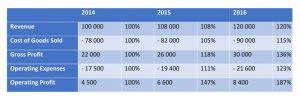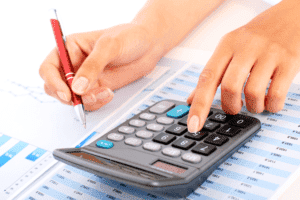
Hemlane, Inc. is a technology company that helps you manage your long-term rental properties. Communications between you and Hemlane are protected by our Privacy Policy. Hemlane also provides access to independent licensed professionals and self-help services at your specific direction. Any content found in the Hemlane Academy is not a substitute for advice and ideas from a qualified legal source or expert.
The Basics of Property Management Accounting
Its intuitive design ensures that property managers can handle all aspects of their accounting without needing multiple tools, saving significant time on repetitive tasks. Journal entries form the backbone of property management accounting, serving as the means to record and manage financial transactions throughout the property management process. Core journal entries under GAAP include entries for rent revenue, which documents income received, and expense entries such as maintenance and utility costs. Another vital entry is the recording of assets and liabilities that reflect purchases, depreciation, and long-term financial obligations.
London Borough of Hackney enhances property management with MRI Software
- Bookkeeping is the process of maintaining your accounting records by recording all business-related transactions.
- When evaluating a Property Accountant resume, look for experience with accounting software, knowledge of property management, and a background in financial reporting.
- Even with the right tools and practices in place, property managers can still make accounting mistakes that lead to inaccuracies, missed opportunities, or added stress.
- By tracking and analyzing expenses, property managers can identify areas where costs can be reduced or streamlined without compromising the quality of services.
- Property management accounting provides a clear view of the financial performance of each property.
Property management accounting is the backbone of this success, helping you track payments, monitor expenses, and stay on top of taxes. Yet, for those managing multiple units, accounting may feel complex and intimidating. For property managers and landlords, managing finances isn’t just about collecting rent or paying bills—it’s about building a sustainable and profitable property management business. If you’re like most property managers, tax season may cause big headaches.
Why Do You Need a Chart of Accounts for Your Property Management Company?
- That said, a lot has changed throughout the pandemic—and will likely continue to do so with the goal of stimulating the economy.
- A chart of accounts is a must-have tool for any successful property management business.
- With cash basis accounting for property management, as long as you keep your business in the black, you’ll typically have a positive cash flow.
- Taxes, compliance, property forecasting, and investment decisions all depend on a complete picture of your properties’ finances.
- In the realm of property management, GAAP ensures that all financial statements accurately reflect the financial health and operations of a property management company.
Yes, you can tailor your chart of accounts to fit your specific property management needs. Add or remove accounts based on the types of properties you manage and the financial information you need to track. Regularly review and update the chart to reflect changes in your business.

If you’re new to 1031 exchanges, it’s best to consult with a tax advisor or 1031 exchange professional to ensure you meet all requirements. Taking advantage of this tax strategy can help you build wealth more efficiently and expand your property portfolio over time. With the right planning and guidance, a 1031 exchange can be a cornerstone of your long-term property management strategy. Failing to record deductible expenses like income summary maintenance costs or property repairs can result in higher taxable income—and missed opportunities to lower your tax liability.
Differentiating Between Operating Expenses and Capital Expenditures:

This means it is taxed at the ordinary income tax rate, rather than a lower capital gains rate. Following structured accounts payable procedures will help you gain control over expenses, improve cash flow management, and prevent costly errors. Financial reports should present data in easy-to-understand formats like charts, graphs, tables, and key takeaways.

- A non-negotiable feature you should look for is the ability to lock your books when you’re ready to file, so it can’t be accidentally or purposefully tampered with—so your reports remain accurate.
- Regular updates help catch any discrepancies early and keep financial statements accurate.
- Accrual accounting is a method where revenues and expenses are recorded when they are earned or incurred, regardless of when the cash is actually received or paid.
- Accounting for property management is an essential part of any real estate agency.
- Talk to your accountant to ensure you are properly tracking and reporting contractor payments each year.
- One way of thinking about it is that with cash accounting, revenue is received, and expenses are paid.
One of the primary objectives of property management accounting is to provide property owners, investors, and stakeholders with accurate and timely financial information. This information helps them make informed decisions regarding the profitability, performance, and growth potential of their real estate investments. Property management accountants analyze financial data to identify trends, assess the financial health of Bookkeeping for Painters properties, and suggest strategies for optimizing income and minimizing expenses. Unlike general accounting, property management accounting is designed to address the unique financial intricacies of real estate. It ensures financial transparency by providing detailed reports on property performance, expense allocation, and revenue distribution.
Double Entry Bookkeeping for Property Management
- Refunding deposits through move-out inspections and detailed documentation of any deductions protect you and your tenant.
- It is useful for evaluating the financial health of a property and determining how much equity the owner has in the property.
- Develop a filing system that separates financial records by property, client, and transaction type.
- They can provide a high-level overview to investors or can be extremely detailed for your monthly HOA meetings.
- Good property management accounting lets you see how much profit each property is making.
Mismanaging tenant deposits, such as failing to keep them separate from operational funds, may result in legal penalties. The trust accounting features in the software make sure tenant deposits are properly tracked and remain legally compliant. In addition to property management software implementation and support, we offer a number of services including SEO and PPC management, call center answering and full-service invoice processing and payment. If there is one thing that you need in order to ensure a successful business, with happy owners and tenants, it’s property management accounting clean books.

Cash Flow Statement
Rent Manager offers a versatile set of accounting features that cater to both small and large-scale operations, making it particularly suitable for managing commercial portfolios. Its cloud-based and desktop versions provide flexibility, allowing property managers to access their financial data from anywhere while managing multiple property types. As with any business, rental property management must consider unexpected expenses.



